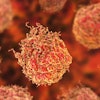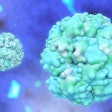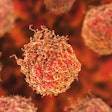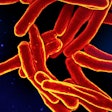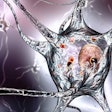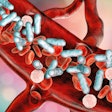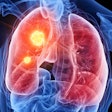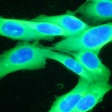
People living with long COVID -- the wide-ranging health issues that can follow SARS-CoV-2 viral infection -- experience disabling symptoms with significant physical, emotional, and financial consequences. In the NIH Directors Blog posted on Wednesday, Dr. Gary Gibbons of the National Heart, Lung, and Blood Institute writes about a National Institutes of Health (NIH) initiative, Researching COVID to Enhance Recovery (RECOVER).
Since RECOVER's launch, he writes, long-COVID patients and their loved ones have joined researchers and clinicians in a collaborative effort to solve mysteries including what causes long COVID, who is most at risk, and how to prevent and treat it. Numerous patient volunteers are providing health information and undergoing medical evaluations and tests, enabling investigators to look for trends. Additionally, millions of electronic medical records are providing insights about those who received care. More than 40 studies are being conducted to identify long COVID's causes, potential biomarkers, and new therapeutic targets.
Central to this effort is the National Community Engagement Group (NCEG), comprising people living with long COVID and those representing them. NCEG is helping researchers understand how and why SARS-CoV-2 impacts people in different ways, and why some people recover while others do not. Researchers have so far learned that people hospitalized for COVID-19 are twice as likely to have long COVID as those who were not hospitalized. They've also learned that racial and ethnic minority groups with long COVID are more likely to have been hospitalized with COVID-19. Similarly, long-COVID disparities exist for those living with detrimental environmental exposures and those previously burdened by diabetes, chronic pulmonary disease, and other diseases. While certain long-COVID symptoms are consistent among patients regardless of which SARS-CoV-2 variant initially infected them, people infected with earlier variants have more symptoms.
Patient experiences will continue to guide RECOVER's preparations for its next phase, testing clinical trials interventions to determine if they can help long-COVID patients. Insights gained from patients include results from study questionnaires, surveys, and discussions with people experiencing significant and burdensome long-COVID symptoms. These include sleep disorders, “brain fog” (trouble thinking clearly), exercise intolerance and fatigue, and nervous system dysfunction. The clinical trials will be designed to evaluate whether certain interventions and therapies can alleviate symptoms that are part of these clusters.
RECOVER trials will be harmonized to ensure that all therapies use the same protocol platforms and data elements. This consistency will strengthen the findings. Given the virus's widespread and diverse effects on the body, multiple treatments will likely be needed. The researchers' goal is to find solutions for people of all races, ethnicities, genders, ages, and geographic locations. For people experiencing debilitating long-COVID symptoms, finding answers as quickly as possible is critical.
"RECOVER is unprecedented in its size and scope as the most-diverse, deeply characterized cohort of long COVID patients," writes Dr. Gibbons. "We’re excited to be advancing toward the next phase of the initiative and are very grateful to patient representatives for getting us to this phase."



